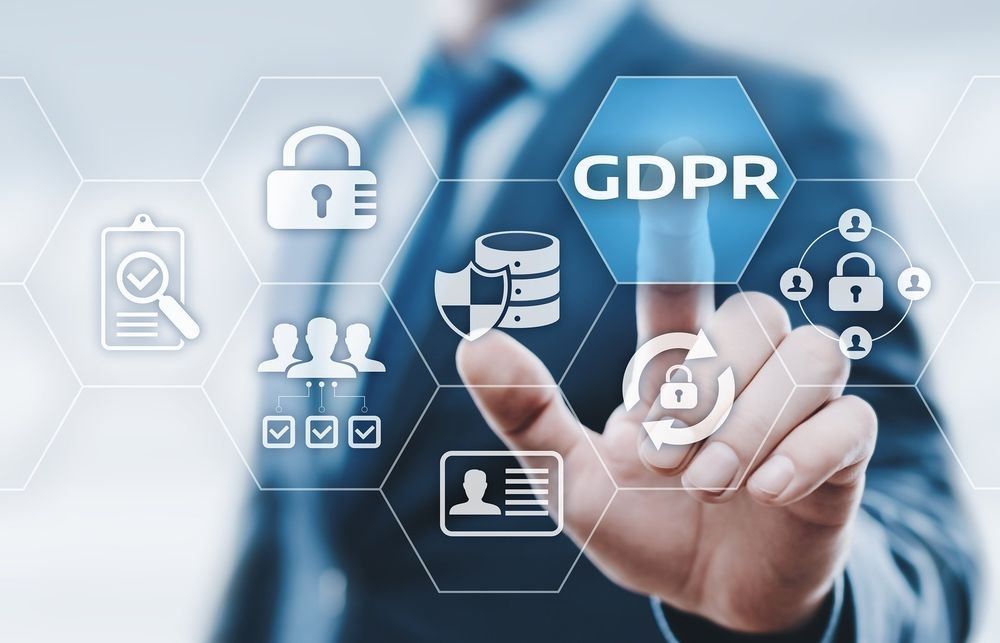
In 2025, the General Data Protection Regulation (GDPR) remains a cornerstone of data privacy, protecting personal information. For local businesses - whether you're a U.S.-based retailer, service provider, or small shop - GDPR compliance is essential if you handle data, such as through online sales, marketing, or employee records. Even companies must comply if they target users or monitor their behavior, with fines reaching up to $20 million or 4% of global annual revenue. Over 2,200 fines totaling $5.6 billion have been issued since 2018, averaging $2.36 million each, often hitting small businesses for routine errors like invalid consent or ignored data requests.
GDPR isn't just about avoiding penalties - it's about building trust. Compliant businesses see higher customer loyalty, with 80% of consumers more likely to share data with transparent brands. In this updated guide, we'll explain GDPR basics, why it matters for local businesses in 2025, key responsibilities, a step-by-step compliance checklist, best practices, common myths, FAQs, essential tools, and how to turn compliance into a competitive edge. Tailored for resource-limited local operations, this draws from the latest trends like AI integration and proposed simplifications.
Why GDPR Matters for Local Businesses in 2025
Since its enforcement in 2018, GDPR has evolved from the 1995 Data Protection Directive, harmonizing rules across the EU while inspiring laws like California's CCPA. In 2025, amid rising data breaches (up 20% year-over-year) and tech like AI, GDPR emphasizes privacy by design - embedding protections into systems from the start. For local businesses, key drivers include:
Global Reach: If your website attracts EU visitors (e.g., via analytics or e-commerce), you're in scope. Non-EU firms must comply if offering services or monitoring EU behavior, affecting ~95% of businesses handling data.
Enforcement Trends: DPAs issued more fines to SMBs for basics like consent failures. Spain leads with 980+ fines, often small but cumulative. The "one-stop-shop" aids cross-border cases, but uneven enforcement persists.
2025 Reforms: The Omnibus Simplification Package proposes easing burdens - extending record-keeping exemptions to firms with up to 750 employees (from 250) and limiting DPO requirements, potentially saving $66 million annually. EDPB's 2024-2027 strategy focuses on AI, biometrics, and tiered frameworks (e.g., "mini-GDPR" for low-risk SMBs).
Benefits: Compliance boosts reputation - 93% of consumers check privacy practices before buying - and reduces risks like breaches costing $4.45 million on average.
Local Impact: U.S. local businesses (e.g., auto shops, clinics) handling EU tourist data or online leads must secure it, train staff, and document processes to avoid audits from complaints.
Ignoring GDPR isn't viable - consumer awareness is high, with 70% opting out of non-transparent tracking. Compliance can take 2-3 weeks with tools, versus years manually.
Key GDPR Responsibilities for Local Businesses
GDPR protects "personal data" (e.g., names, emails, IP addresses) and "sensitive data" (e.g., health, ethnicity). Local businesses act as controllers (deciding data use) or processors (handling for others). Core principles include lawfulness, transparency, minimization, accuracy, storage limitation, integrity, and accountability. Responsibilities:
Lawful Basis: Process data only with grounds like consent, contract, or legitimate interest.
Transparency: Provide clear privacy notices at collection points.
Data Rights: Honor access, rectification, erasure, portability, objection, and restriction within one month.
Security: Use encryption, MFA, and breach plans; notify DPAs within 72 hours.
Accountability: Document activities; appoint DPO if high-risk.
Children's Data: Get parental consent for under-16s.
For local firms, focus on customer/employee data in emails, CRM, or websites.
12-Step GDPR Compliance Checklist for Local Businesses
Compiled from expert guides, this 12-step checklist simplifies compliance for 2025.
Assess Applicability: Check if you process EU data; if yes, proceed.
Conduct Data Audit: Map data types, sources, flows, purposes, and risks.
Document Processing: Record activities, even if exempt (under 250 employees, low-risk).
Appoint DPO if Needed: For sensitive/large-scale data; outsource for locals.
Update Privacy Policies: Use plain language; include rights, retention, transfers.
Manage Consent: Opt-in only; easy withdrawal; cookie banners with options.
Handle Data Rights: Set up request processes; respond in one month.
Implement Security: Encryption, MFA, training; breach response plan.
Conduct DPIAs: For high-risk activities like AI profiling.
Vet Third Parties: Use DPAs; ensure compliant processors.
Train Employees: On basics, phishing, reporting; foster culture.
Audit Regularly: Review quarterly; adapt to reforms like Omnibus.
10 Best Practices for GDPR Compliance in 2025
Privacy by Design: Build protections into systems early.
Minimize Data: Collect only essentials; delete unused.
Transparent Notices: At collection; update with changes.
Secure Tools: Use GDPR-compliant cloud (e.g., Microsoft 365).
Consent Management: Automated banners; record details.
Breach Preparedness: 72-hour notifications; drills.
Employee Training: Annual; cover AI risks.
Vendor Audits: KPIs for processors; regular reviews.
Marketing Compliance: Opt-outs; PECR alignment.
Leverage Reforms: Monitor Omnibus for simplified exemptions.
Common GDPR Myths for Local Businesses
Myth 1: Small Businesses Are Exempt: No - applies to all processing EU data.
Myth 2: Only EU-Based: Extraterritorial; U.S. locals comply if targeting EU.
Myth 3: Consent Always Needed: Other bases like contracts suffice.
Myth 4: B2B Is Safe: Personal data in B2B triggers rules.
Myth 5: One-Time Fix: Ongoing; audit regularly.
Frequently Asked Questions
Does GDPR Apply to U.S. Local Businesses? Yes, if processing EU data.
Do I Need a DPO? Only for high-risk; outsource if unsure.
What Are Fines? Up to $20M/4% revenue; SMBs face smaller but frequent.
How to Handle Breaches? Notify within 72 hours.
Cookies and Websites? Consent banners required.
Essential Tools for GDPR Compliance in 2025
Audit/Mapping: Microsoft Purview, Sprinto for automation.
Consent/CMP: Termly CMP, Didomi for banners.
Policy Generators: Termly, GDPR.eu templates.
Security: Microsoft 365 for encryption/DLP.
Training: Affordable platforms like Eve Consultancy tools.
Make GDPR Work for Your Local Business
In 2025, GDPR compliance is achievable and advantageous for local businesses, fostering trust amid reforms like simplified exemptions. By following this guide, you'll mitigate risks, enhance operations, and turn privacy into a strength.
Need help navigating GDPR? Contact CMG Local Solutions for expert digital marketing and compliance support. As a Google Ads Partner, we deliver data-driven strategies to keep you compliant and competitive. Let's protect your data - reach out today!







